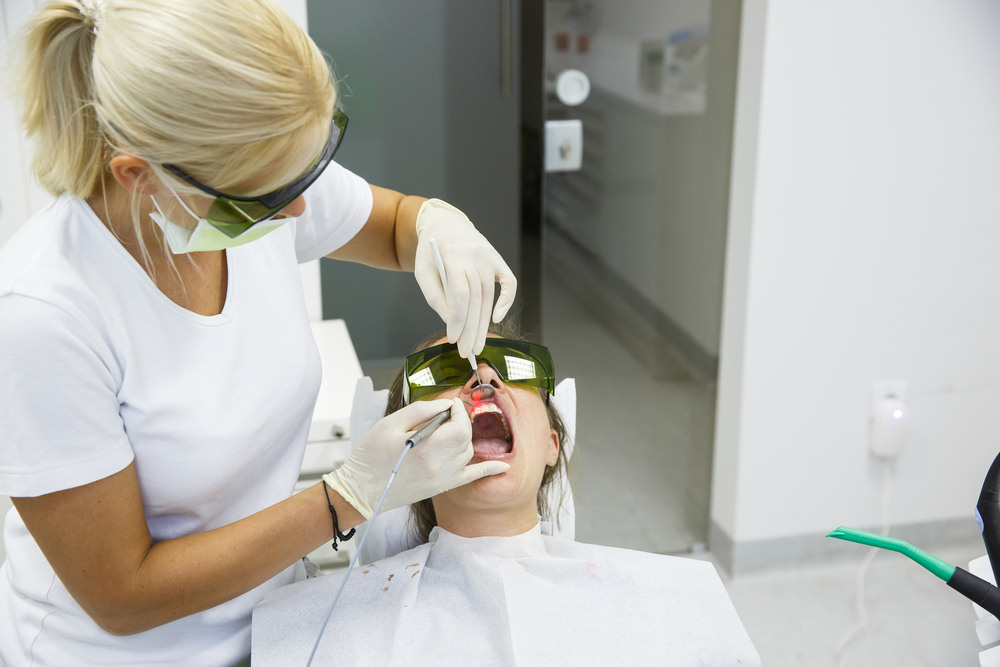Halitosis ‘aka’ Bad Breath
Halitosis. Sounds serious right? Well, it can be if you don’t find out what is causing it in the first place.
The familiar name for halitosis is bad breath and it can be incredibly embarrassing if you have it.
Reportedly, it affects some 25% of the population and thus commonplace.
There are some simple ways to reduce even rid yourself of halitosis, but it does take a little planning and consistency on your part.
With good dental hygiene habits and healthy eating, you will be on the right track to turnaround this unfortunate condition.
Jump to Contents
What Causes Halitosis?
Several factors can cause bad breath. From sulphur-producing bacteria found on your tongue and throat to illness and diet as well as bad dental hygiene.
If your breath makes you cringe, here are some possible culprits.
Some of them are easy fixes that you can take care of yourself while others might need help from your dentist or doctor.
Poor Dental Hygiene
If you skip brushing and flossing regularly, food particles will start to harbour around your teeth and gums. Allowing this to happen will cause halitosis at some point. It’s almost a certainty.
Why is this? Bacteria = Odour.
Bacteria are the building blocks of plaque that develop between your teeth and gums.
Now, plaque left untreated will advance to conditions such as gingivitis and finally gum disease.
Having a dental hygiene routine and consistently applying it morning and night will do wonders for your dental health and your breath.
Diet
If you eat pungent foods like garlic, onions, or curry and don’t brush soon afterwards, halitosis can quickly develop.
The same holds true if you consume a lot of sugary foods. When sugar breaks down, the odour can be intense.
If you’re a coffee fan, avoid the dreaded ‘coffee breath’ by brushing or popping a breath mint after your morning latte. A glass of water is also recommended.
Smoking
It is a known fact that smoking dries out your mouth incredibly, reducing your first line of defence which is saliva.
Over time, smoking will also damage your teeth and gums and cause bad breath. Another good reason to quit!
Illness
Infections in the sinus and respiratory tract are common causes of halitosis. Medical conditions affecting your breath can include:
- Bronchitis
- Tonsilitis
- Gastritis
- Diabetes.
Some medications can even induce a state of halitosis which can be quite unpleasant.
If your halitosis persists and you brush and floss on a regular basis, please see your doctor.
Bad Breath even after Brushing?
For some of us, no matter how faithfully we brush and floss after meals, the bad breath stays like the proverbial bad smell.
This can happen if food residue remains on the back of the tongue. Trying a low-cost tongue scraper may solve the problem.
If it doesn’t, make an appointment with your doctor to make sure that your breath issues don’t signify an underlying health condition.
Do Tongue Scrapers Work?
Tongue scrapers are oral health tools designed to clean your tongue’s top surface.
There hasn’t been a massive amount of research published on their effectiveness. Some testing does suggest that tongue scraping can temporarily reduce bad breath.
If you have a buildup of bacteria on your tongue, scraping can be a good part of your oral hygiene routine.
But we do stress it is only a small part of your oral hygiene. Brushing and flossing is a must!
Are Some Tongue Scrapers More Effective than Others?
Tongue scrapers do come in a variety of materials, from plastic to stainless steel.
There are two primary styles: single-handled T-shaped ones and U-shaped with double handles. There are also specially designed cleaning brushes available.
While there is no evidence that some tongue scrapers do a better job than others, people with a strong gag reflex report that using a brush is problematic.
If this applies to you, go with a regular scraper instead.
Standard Halitosis Treatment
Treating halitosis requires you to identify the cause and take appropriate measures.
Because bacteria grows between your teeth and gums, in this case, halitosis can be caused by you not brushing and flossing regularly.
It is incredible how brushing and flossing your teeth can improve your overall health!
Setting up a proper dental hygiene routine, along with an antibacterial mouthwash is a great start to overcoming bad breath.
I like to leave a little note on the mirror in the bathroom to remind myself to brush and floss every morning and night. I find this little reminder works a treat and is very helpful.
If you are a person with perpetual bad breath, you could have an excessive buildup of bacteria on the tongue. Try a regular tongue scraper; this may help your halitosis disappear.
If you wear dentures, cleaning them as directed can get rid of odour-causing bacteria.
Is There a Cure for Halitosis?
‘Curing’ chronic halitosis is only accomplished by tackling the root of the problem.
For example, if your bad breath is connected to a high-sugar diet, cutting back on sweets and brushing after every meal can make halitosis disappear.
Although some mouthwash manufacturers tout their product as a ‘cure’ for breath odour, unfortunately, they’ll only mask the smell temporarily.
- Speciality toothpaste
- Toothbrushes
- Dental floss
- Anti-bacterial mouthwash
If you find yourself continually using mouthwash to hide unpleasant breath, see your dentist. They may prescribe artificial saliva or recommend sucking on sugarless lollies to stimulate saliva.
Remember that eliminating halitosis requires long-term changes in your oral hygiene routine (unless the source is an illness).
So never stop at temporary solutions, they will only mask the problem of bad breath.
Why does Fasting Cause Halitosis?
Fasting can cause a condition known as ketosis.
Once the body exhausts its glycogen supply, it starts burning fat for fuel.
When this happens, your ketone levels rise and are excreted from your body via your breath causing halitosis.
If you regularly skip meals and fluids this can also cause the mouth to produce less saliva.
With less bacteria-fighting moisture in your mouth, bacteria starts to flourish on your palate and tongue.
- Gum disease
- Liver disease
- Kidney disease
If your dental hygiene is excellent and there are no signs of mouth sores, gum disease, or tooth decay, see your doctor for additional tests.
This is merely to rule out the possibility of a more severe condition.
Can Halitosis be Hereditary?
You may have heard that halitosis can be passed on from one generation to the next like hair or eye colour.
This is not true at all! Bad breath is not genetic and thus cannot be inherited.
Specific illnesses that may contribute to halitosis and can be hereditary include:
- Diabetes
- Kidney disease
Can it be Contagious?
Bacteria build up in the mouth causes most cases of halitosis.
Although some claim that it can be spread from person to person by kissing, sharing cups and utensils, the truth is that halitosis is not contagious.
If you have it, your mouth or body is the culprit, not someone else’s.
Conclusion
Halitosis ‘aka’ bad breath is something that can be overcome in most cases.
Coming up with a better, healthier diet, making sure you consistently adhere to a dental hygiene plan and drinking plenty of water are noteworthy.
As a result, these 3 simple actions will provide you with a good foundation to beat bad breath and ultimately live a healthier life.
Do you suffer from bad breath? Ask Dr V for some professional advice.
By Dr. V
Created at February 02, 2018, Updated at January 25, 2025

















